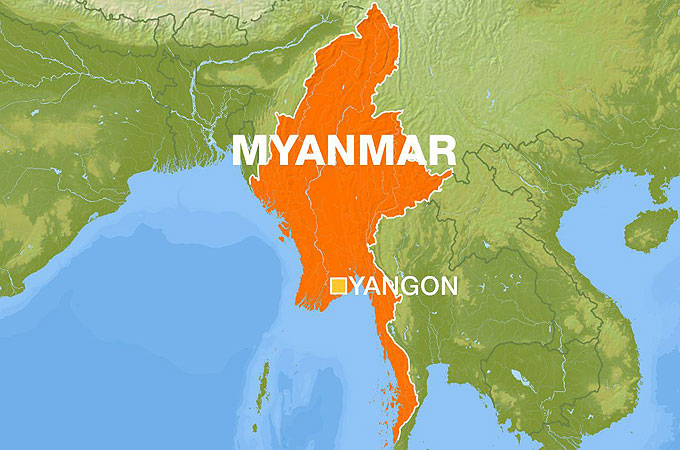Maungdaw, Arakan State: Police
personnel from Maungdaw police department used the emergency Act 144 to
extort money from Rohingyas youth on October 19, according to an elder
from Maungdaw.
“The police personnel- U Maung Chey- extorted 100,000 kyat from five Rohingyas youth who are sitting and talking each other in a place near the Maungdaw clock tower with allegation of emergency Act 144.”
The Rohingyas youth are between 15 – 18 year old and they are sitting
like Rakhine community, but the police personnel U Maung Chey alleged
them they broke the emergency Act 144 which was imposed in Maungdaw
since June riot, said a student’s relative.“The police personnel- U Maung Chey- extorted 100,000 kyat from five Rohingyas youth who are sitting and talking each other in a place near the Maungdaw clock tower with allegation of emergency Act 144.”
Maungdaw police personnel are extorting money from Rohingya community in Maungdaw since the riot started in June using so-called arrest list, involving in the riot, according to a teacher from Maungdaw.
“The police personnel from Maungdaw police station are stationed near the clock tower where most of the Rohingyas from rural areas pass this place while they go to the market and the police personnel called the Rohingyas who passed the place and accused them that they were involved in the riot. After that the police asked money to release otherwise to arrest and kept in a hotel which was their camp to keep the Rohingya.”
“Military Intelligent personnel raided the hotel where the police personnel kept the Rohingya to extort money from them. The Military Intelligent seized huge money and rescue three Rohingyas from the hotel last month with information. The Military Intelligent arrest a police officer with this connection, but other police officer started again their plan to extort the money from Rohingyas.”
The emergency Act was imposed in northern Arakan where no more than five persons gather in a place. But, Rakhines community is able to gather more than five persons under the emergency Act 144, said a student from Maungdaw.
“Recently, Rakhine community demonstrated in Akyab and Rathidaung with more than hundreds of people against the Organization of Islamic Cooperation (OIC) under the emergency Act 144 imposed areas. How can the Rakhines demonstrated in unrest areas without support of President Thein Sein government. This is only a magic show, the Thein Sein government play to the world.”
“The government reacted quickly by declaring a Emergency Section 144 on June 9 and a curfew on June 10. These measures did not, however, stop the violence and nor was it intended for that purpose. In fact, the curfew was intended to give the Rakhines an upper hand in the violence. While the security forces made sure the Rohingyas stayed indoors, mobs of Rakhines looted and pillaged with impunity. Videos of burning Rohingya villages surfaced all over the internet and the international news networks. Many of the looters, proud of their handiwork, spoke before cameras. The security forces did little to stop them and in many cases aided the mobs. There were consistent reports of extra judicial killings, beatings and intimidation of the Rohingyas by the armed forces. Many Rohingyas were killed and women were raped during this time. The government figures suggested that altogether 78 people, mostly Rohingyas, died in the conflict. Human rights groups estimate the figure to be much higher,” according to No Respite for Rohingyas by Shudeepto Ariquzzaman which published on http://www.thedailystar.net/forum/2012/October/no.htm

